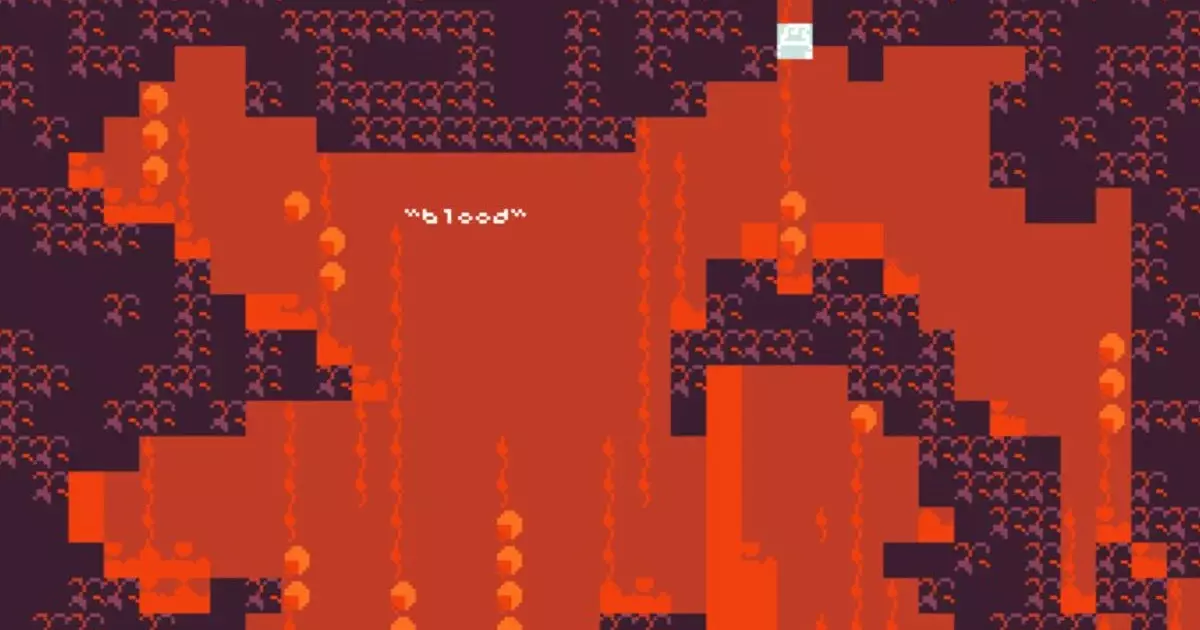In a landscape cluttered with conventional game mechanics and predictable storytelling, Droqen—the creative mind behind the enigmatic title *Starseed Pilgrim*—is back with a daring proposition that shatters the norms of gameplay. Announced recently, *The End Of Gameplay* invites players to quite literally “kill gameplay” itself. This audacious premise hints at an exploratory 2D platformer that feels more original than most offerings currently populating gaming platforms. As if stripping away all pretense, Droqen suggests players will find themselves navigating a digital world that provides a fresh lens through which to interpret what gaming can be, raising questions about purpose, experience, and the very nature of interaction in virtual spaces.
Droqen’s approach to this new title is imbued with a distinctly avant-garde flair. He articulates his vision succinctly: it is the essence of *Starseed Pilgrim* distilled into elements he feels resonate deeply—not only with him but also with the niche audience that craves a departure from mainstream expectations. This sentiment carries a powerful undercurrent; it’s as if he’s beckoning fellow voyagers to shed the shackles of traditional gameplay, thereby inviting them to engage in a more philosophical and introspective engagement with the medium. The intentional ambiguity surrounding what constitutes gameplay leaves room for interpretations that transcend merely achieving objectives or accumulating scores.
A Visual and Poetic Journey
At its core, *The End Of Gameplay* is being framed as an experience rather than a traditional game. The evolution of Droqen’s titles posits them as experimental art pieces that, rather than offering linear, structured gameplay, provide a space for exploration and contemplation. In a world where many games prioritize dense action or intricate plotlines, this new title aims to highlight the beauty of minimalism and ambient storytelling. Players are encouraged to wander through undefined landscapes, reminiscent of wandering through an abstract art gallery—allowing their imagination to fill in the blanks that traditional narratives often complete.
This artistic direction resonates with indie creators’ current trend of packaging short works into lean compilations. Labels such as “anthology” convey an openness to experimentation, a willingness to bundle together concepts that may initially seem unconnected but ultimately enrich the player’s overall experience. Droqen’s reflections suggest a conscious move toward an understanding and acceptance of ambiguity—an experience that hinges on the players discovering meaning in the gameplay’s absence. This philosophical approach recalls the sentiments of other indie developers who have embraced similar paths; Terry Cavanagh’s collection, *Terry’s Other Games*, and the collaborative *UFO 50* both share this thematic refusal of conventional storytelling.
Embracing the Art of Uncertainty
While *Starseed Pilgrim* has garnered a niche following, even presenting challenges to authoritatively define its appeal, the luminosity of *The End Of Gameplay* arises from an intentional disavowal of heavily structured gaming. Droqen himself even remarks on the peculiar relationship between creators and their audience, where some game mechanics and design choices might be enshrined in tradition that feels more limiting than liberating. The act of “killing gameplay” is a radical rejection of corporate gaming conventions, an approach that feels both necessary and timely amidst a larger industry that can often feel monolithic.
The concept of gameplay is akin to an intricate web, unfurling rapidly with roots that dig deep into the psyche of gamers. Yet, by striving to dismantle this structure, Droqen positions himself as a radical artist keen on peeling back layers of expectation. This approach invites a visceral connection, allowing players to confront what it means to engage with software designed for entertainment. It’s an invitation into a world where uncertainty reigns king, and exploration takes precedence over achievement.
Why We Should Care
Ultimately, *The End Of Gameplay* is more than just another indie title; it’s a call to arms for those weary of formulaic narratives and monotonous design tropes. The enthusiasm expressed by Droqen highlights a critical discourse occurring within the realm of game development, one where asking questions is just as valuable as providing answers. By embracing vagueness and ambiguity, the hopes for a refreshing experience hang high, offering a potential revolution—a space for players to dance not only with the game itself but also within their own thought processes. The upcoming release on the full flower moon in May speaks to the cyclical nature of creativity, ensuring that this peculiar venture into the philosophical depths of gameplay will be both anticipated and a challenge to traditional definitions.


Leave a Reply